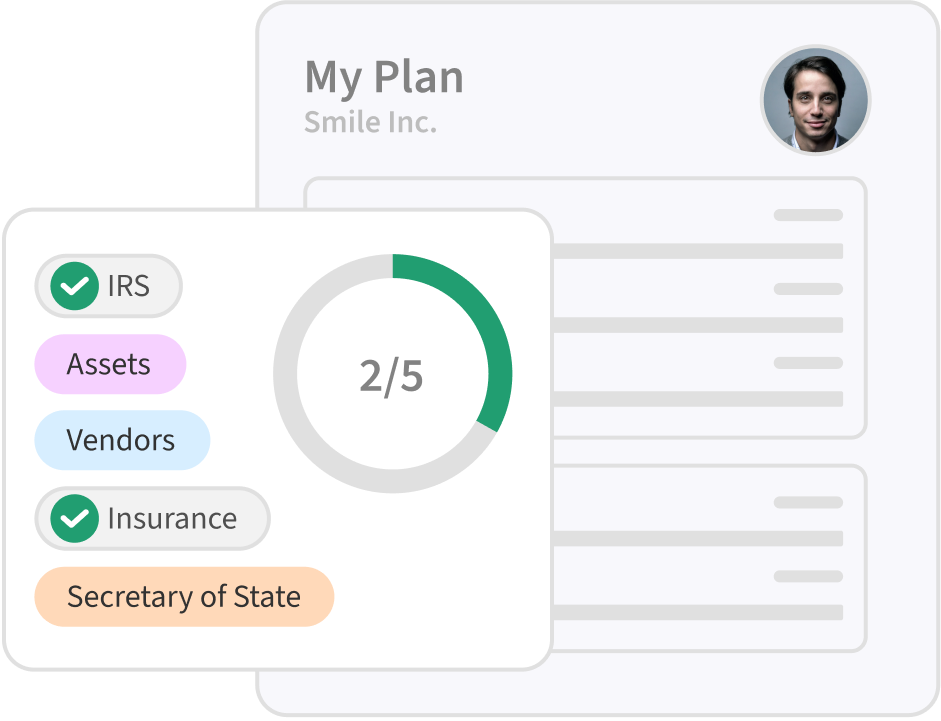When you close your business, one of your primary concerns is whether you may be personally liable for some or all of your company’s debt. Even if you wind down your company, you may be worried that you’ll owe creditors, and you may worry that the weight of debt will follow you into future endeavors.
Whether you are liable for business debt is a complex question and turns on several important factors, including your business’s legal structure and what kinds of guarantees you have signed.
Business Structure and Debt
The legal structure of your company plays a significant role in your liability for its debt when you decide to close the company.
Risks Associated with Sole Proprietorships
If your company is a sole proprietorship and you have not created a separate legal entity for it, you face the highest level of personal risk. Any business creditor can go after your personal assets, in addition to the assets of the company. The creditors can also personally sue you if you don’t have the assets to cover the debt. This can result in judgments, liens, and collection attempts.
Partnership Liability
If your company is a partnership, it has two or more owners. Because there are different kinds of partnerships, your liability depends on how you formed the partnership.
General Partnership: All partners are personally liable for the debts of the company
Limited Partnership: General partners are personally liable for the debt while limited partners are not personally liable
Limited Liability Partnership: Your liability varies by state. In some states, no partners are personally liable. In others, they may be personally liable for contracts. Some states require there to be a general partner and in that situation, the general partner has personal liability. Additionally, in some states partners are only protected from negligence claims and not other debts.
Advantages and Disadvantages of a Limited Liability Company
A limited liability company (LLC) provides the members (owners) with liability protection. Even though the IRS considers an LLC a pass-through entity for tax purposes, allowing you to report earning directly on your personal income taxes, formally filing your LLC with your state sets up a formal business structure that protects you. LLC members are not liable for the company’s debts.
The Protection Offered by Corporations
Shareholders are not responsible for the corporate debt. This is true for both S corps and C corps. Board of director members are also not personally liable.
Two Key Points of Vulnerability
Even if you’ve protected yourself by setting up your company as a limited partnership, LLC, or corporation, you may still find yourself personally liable for the company’s debts in two situations.
Commingling of Assets
If you have commingled your personal assets with that of your company, you have “pierced the corporate veil” and your personal assets may become accessible to your company’s creditors.
Business structures like LLPs, LLCs, and corporations require you to keep your business accounts completely separate from your personal accounts. Even if you are the only member of an LLC, you must still maintain a separate bank account and keep separate records for your company. If you deposit a personal check into your business account, withdraw money from your business account to pay for a personal expense, or blur the line in other ways between your personal finances and your businesses finances, you have opened yourself up to personal liability.
Personal Guarantees
The second tripping point for personal liability occurs if you signed a personal guarantee for any debt of your company. In doing so, you placed your personal assets on the line and the creditor for that particular debt can collect from you personally.
It’s also key to understand that if you do not pay your payroll taxes, you are personally liable, no matter what your business structure is. IRS Code section 6672 holds “responsible persons” liable for nonpayment of corporate payroll. Responsible people include officers, directors, accountants, and more. You’re also personally liable for penalties and interest for these taxes.
If you have a corporate credit card, such as a Brex or Ramp card, make sure it doesn’t have a personal guarantee on the card, you’re also liable for that debt as well.
If you need help winding down your business and determining your personal liability for company debt SimpleClosure.com can streamline the process and handle the filings for you. Failing to properly wind down your business can make you liable for taxes and fines. Get more information today.
Get your free founder's guide to shutting down

A comprehensive breakdown of how founders can quickly and easily execute a fully compliant shutdown
FAQs
Who is liable for business debts?
Sole proprietors and some partners are personally liable for their company’s debts. However, even if you have formed an LLC, you may be personally liable if you commingled business and personal assets or signed a personal guarantee.
What happens when a business cannot pay its debts?
If your business cannot pay its debts, you can negotiate with creditors, create an assignment for the benefit of creditors (ABC), file for bankruptcy, or close your business.
Are members personally liable for the debts of the business in a limited liability company?
No. LLC members are not personally liable unless they personally guaranteed a debt or have pierced the corporate veil by commingling personal and business funds.


